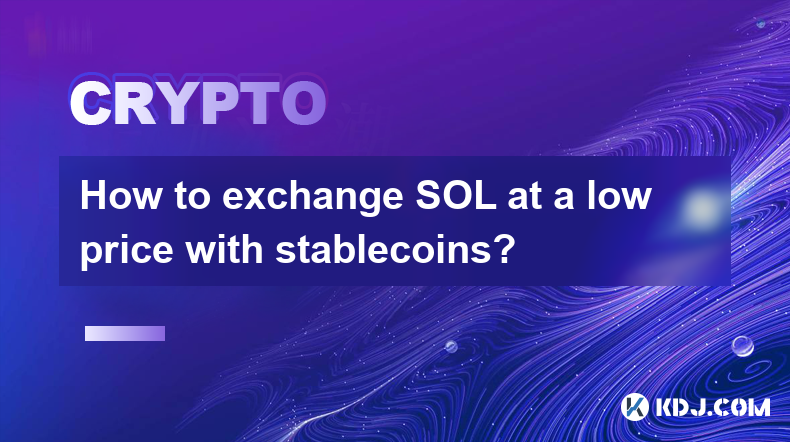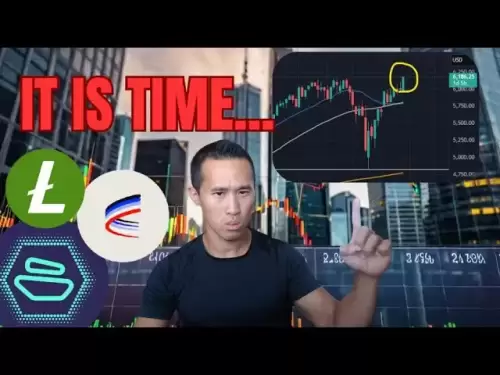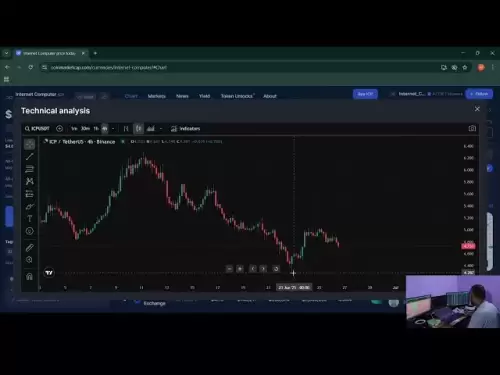-
 Bitcoin
Bitcoin $107,247.2038
-0.18% -
 Ethereum
Ethereum $2,424.7947
0.34% -
 Tether USDt
Tether USDt $1.0003
-0.02% -
 XRP
XRP $2.1171
-3.33% -
 BNB
BNB $645.6618
0.06% -
 Solana
Solana $141.5898
-1.32% -
 USDC
USDC $0.9998
0.00% -
 TRON
TRON $0.2710
-0.41% -
 Dogecoin
Dogecoin $0.1602
-2.99% -
 Cardano
Cardano $0.5553
-2.28% -
 Hyperliquid
Hyperliquid $36.3019
-2.42% -
 Bitcoin Cash
Bitcoin Cash $491.7212
2.04% -
 Chainlink
Chainlink $13.0810
-0.23% -
 Sui
Sui $2.6080
-5.06% -
 UNUS SED LEO
UNUS SED LEO $9.0040
-0.05% -
 Stellar
Stellar $0.2350
-3.06% -
 Avalanche
Avalanche $17.2294
-2.31% -
 Toncoin
Toncoin $2.8075
-1.05% -
 Shiba Inu
Shiba Inu $0.0...01121
-3.43% -
 Litecoin
Litecoin $84.2215
-0.32% -
 Hedera
Hedera $0.1429
-4.88% -
 Monero
Monero $312.2199
-0.90% -
 Dai
Dai $0.9997
-0.01% -
 Ethena USDe
Ethena USDe $0.9999
-0.02% -
 Polkadot
Polkadot $3.2973
-2.60% -
 Bitget Token
Bitget Token $4.4742
3.12% -
 Pi
Pi $0.5631
-10.10% -
 Uniswap
Uniswap $6.7817
-2.06% -
 Pepe
Pepe $0.0...09252
-3.74% -
 Aave
Aave $251.3830
-2.24%
How to exchange SOL at a low price with stablecoins?
To get the best SOL deals with stablecoins, use DEXs like Raydium for lower fees, CEXs like Binance for liquidity, and time trades using market analysis.
Mar 29, 2025 at 12:42 am

Finding the Best Deals on SOL with Stablecoins
Exchanging Solana (SOL) for stablecoins, and vice-versa, requires a strategic approach to minimize fees and maximize your return. The price of SOL, like any cryptocurrency, fluctuates constantly. Timing your trades effectively is crucial to achieving a low price. This involves understanding various exchange platforms, their fee structures, and the current market conditions. Several methods exist to help you navigate this process successfully.
Utilizing Decentralized Exchanges (DEXs)
Decentralized exchanges (DEXs) offer a potentially cheaper alternative to centralized exchanges (CEXs). DEXs operate without intermediaries, reducing reliance on a central authority and often resulting in lower trading fees. However, DEXs can sometimes have higher slippage (the difference between the expected price and the actual execution price) due to lower liquidity compared to CEXs. Popular DEXs for SOL trading include Raydium and Orca. Remember to thoroughly research each platform before using it.
- Research the DEX's fee structure: Different DEXs charge varying fees, some based on a percentage of the trade, others on a fixed fee. Compare fees across platforms.
- Check liquidity: Higher liquidity generally means less slippage. Look for DEXs with substantial trading volume for SOL and your chosen stablecoin.
- Understand the risks: DEXs can be more complex to use than CEXs, and you are solely responsible for securing your private keys.
Leveraging Centralized Exchanges (CEXs)
Centralized exchanges (CEXs) offer a user-friendly interface and generally higher liquidity than DEXs. However, they typically charge higher fees. Major CEXs like Binance, Coinbase, and Kraken offer SOL trading pairs with various stablecoins (USDT, USDC, etc.). The key is to find the exchange with the lowest fees for your specific trade.
- Compare trading fees: Each CEX has its own fee structure. Carefully compare the maker and taker fees before executing a trade.
- Look for discounts: Many CEXs offer discounts for high trading volume or the use of their native tokens.
- Consider the spread: The spread is the difference between the bid and ask price. A smaller spread indicates a better price.
Timing Your Trades Strategically
The price of SOL is volatile. Timing your trades is essential for securing a low price. Market analysis, using tools like charts and indicators, can help you identify potential buying opportunities. Avoid impulsive decisions; instead, rely on data-driven insights.
- Monitor price charts: Use technical analysis to identify trends and potential support/resistance levels.
- Stay informed about market news: Major events can significantly impact SOL's price. Stay updated on relevant news.
- Use limit orders: Limit orders allow you to buy SOL only when it reaches your target price, minimizing the risk of overpaying.
Utilizing Automated Trading Bots
Automated trading bots can execute trades based on pre-defined parameters, potentially helping you capitalize on market fluctuations and secure better prices. However, using bots carries risks, and you should thoroughly research and understand the bot's functionality before using it.
- Choose a reputable bot: Not all bots are created equal. Research and select a bot with a proven track record and positive user reviews.
- Set clear parameters: Define your risk tolerance and trading strategy before deploying the bot.
- Monitor the bot's performance: Regularly review the bot's trades and adjust parameters as needed.
Diversifying Your Exchange Strategy
Don't rely on a single exchange. Using a combination of DEXs and CEXs allows you to take advantage of the strengths of each platform, potentially securing better prices and minimizing risks.
- Spread your assets: Don't keep all your SOL or stablecoins on a single exchange. Utilize multiple platforms for better security and diversification.
- Compare prices across exchanges: Before executing a trade, check prices on several platforms to find the best deal.
- Be aware of withdrawal fees: Consider withdrawal fees when transferring assets between exchanges.
Frequently Asked Questions
Q: What are stablecoins?
A: Stablecoins are cryptocurrencies designed to maintain a stable value, usually pegged to a fiat currency like the US dollar. Examples include USDT, USDC, and BUSD.
Q: What are the risks of exchanging SOL with stablecoins?
A: Risks include price volatility of SOL, exchange platform security vulnerabilities, smart contract risks (especially on DEXs), and the potential for scams.
Q: How can I minimize transaction fees?
A: Minimize fees by comparing fees across different exchanges, using limit orders, and taking advantage of discounts offered by some platforms. Choosing the right network for your transaction (e.g., choosing a cheaper network on a CEX) can also significantly reduce fees.
Q: Are DEXs or CEXs better for exchanging SOL?
A: There's no universally "better" option. DEXs often have lower fees but can have lower liquidity and higher complexity. CEXs offer higher liquidity and a user-friendly interface but typically charge higher fees. The best choice depends on your priorities and risk tolerance.
Q: What should I do if I experience a problem on an exchange?
A: If you encounter problems, contact the exchange's customer support immediately. Review the exchange's terms of service and dispute resolution processes. In some cases, you may need to seek legal advice.
Disclaimer:info@kdj.com
The information provided is not trading advice. kdj.com does not assume any responsibility for any investments made based on the information provided in this article. Cryptocurrencies are highly volatile and it is highly recommended that you invest with caution after thorough research!
If you believe that the content used on this website infringes your copyright, please contact us immediately (info@kdj.com) and we will delete it promptly.
- TRUMP Token Tumult: Liquidity Exit Sparks Crash Fears!
- 2025-06-27 12:30:12
- Elementary, My Dear Collector: Sherlock Holmes Coins Fetch High Prices!
- 2025-06-27 12:35:12
- Sui Growth: Blockchain Ecosystem Expansion in 2025
- 2025-06-27 12:47:14
- Coinbase Stock Soars to New Highs: Is the Rally Sustainable?
- 2025-06-27 12:47:14
- Pi Coin Price Prediction Today: Will It Ever Break Free?
- 2025-06-27 12:50:12
- Cryptos to Buy Now: Riding the Climbing Price Wave
- 2025-06-27 12:52:09
Related knowledge

How to customize USDT TRC20 mining fees? Flexible adjustment tutorial
Jun 13,2025 at 01:42am
Understanding USDT TRC20 Mining FeesMining fees on the TRON (TRC20) network are essential for processing transactions. Unlike Bitcoin or Ethereum, where miners directly validate transactions, TRON uses a delegated proof-of-stake (DPoS) mechanism. However, users still need to pay bandwidth and energy fees, which are collectively referred to as 'mining fe...

USDT TRC20 transaction is stuck? Solution summary
Jun 14,2025 at 11:15pm
Understanding USDT TRC20 TransactionsWhen users mention that a USDT TRC20 transaction is stuck, they typically refer to a situation where the transfer of Tether (USDT) on the TRON blockchain has not been confirmed for an extended period. This issue may arise due to various reasons such as network congestion, insufficient transaction fees, or wallet-rela...

How to cancel USDT TRC20 unconfirmed transactions? Operation guide
Jun 13,2025 at 11:01pm
Understanding USDT TRC20 Unconfirmed TransactionsWhen dealing with USDT TRC20 transactions, it’s crucial to understand what an unconfirmed transaction means. An unconfirmed transaction is one that has been broadcasted to the blockchain network but hasn’t yet been included in a block. This typically occurs due to low transaction fees or network congestio...

How to check USDT TRC20 balance? Introduction to multiple query methods
Jun 21,2025 at 02:42am
Understanding USDT TRC20 and Its ImportanceUSDT (Tether) is one of the most widely used stablecoins in the cryptocurrency market. It exists on multiple blockchain networks, including TRC20, which operates on the Tron (TRX) network. Checking your USDT TRC20 balance accurately is crucial for users who hold or transact with this asset. Whether you're sendi...

What to do if USDT TRC20 transfers are congested? Speed up trading skills
Jun 13,2025 at 09:56am
Understanding USDT TRC20 Transfer CongestionWhen transferring USDT TRC20, users may occasionally experience delays or congestion. This typically occurs due to network overload on the TRON blockchain, which hosts the TRC20 version of Tether. Unlike the ERC20 variant (which runs on Ethereum), TRC20 transactions are generally faster and cheaper, but during...

The relationship between USDT TRC20 and TRON chain: technical background analysis
Jun 12,2025 at 01:28pm
What is USDT TRC20?USDT TRC20 refers to the Tether (USDT) token issued on the TRON blockchain using the TRC-20 standard. Unlike the more commonly known ERC-20 version of USDT (which runs on Ethereum), the TRC-20 variant leverages the TRON network's infrastructure for faster and cheaper transactions. The emergence of this version came as part of Tether’s...

How to customize USDT TRC20 mining fees? Flexible adjustment tutorial
Jun 13,2025 at 01:42am
Understanding USDT TRC20 Mining FeesMining fees on the TRON (TRC20) network are essential for processing transactions. Unlike Bitcoin or Ethereum, where miners directly validate transactions, TRON uses a delegated proof-of-stake (DPoS) mechanism. However, users still need to pay bandwidth and energy fees, which are collectively referred to as 'mining fe...

USDT TRC20 transaction is stuck? Solution summary
Jun 14,2025 at 11:15pm
Understanding USDT TRC20 TransactionsWhen users mention that a USDT TRC20 transaction is stuck, they typically refer to a situation where the transfer of Tether (USDT) on the TRON blockchain has not been confirmed for an extended period. This issue may arise due to various reasons such as network congestion, insufficient transaction fees, or wallet-rela...

How to cancel USDT TRC20 unconfirmed transactions? Operation guide
Jun 13,2025 at 11:01pm
Understanding USDT TRC20 Unconfirmed TransactionsWhen dealing with USDT TRC20 transactions, it’s crucial to understand what an unconfirmed transaction means. An unconfirmed transaction is one that has been broadcasted to the blockchain network but hasn’t yet been included in a block. This typically occurs due to low transaction fees or network congestio...

How to check USDT TRC20 balance? Introduction to multiple query methods
Jun 21,2025 at 02:42am
Understanding USDT TRC20 and Its ImportanceUSDT (Tether) is one of the most widely used stablecoins in the cryptocurrency market. It exists on multiple blockchain networks, including TRC20, which operates on the Tron (TRX) network. Checking your USDT TRC20 balance accurately is crucial for users who hold or transact with this asset. Whether you're sendi...

What to do if USDT TRC20 transfers are congested? Speed up trading skills
Jun 13,2025 at 09:56am
Understanding USDT TRC20 Transfer CongestionWhen transferring USDT TRC20, users may occasionally experience delays or congestion. This typically occurs due to network overload on the TRON blockchain, which hosts the TRC20 version of Tether. Unlike the ERC20 variant (which runs on Ethereum), TRC20 transactions are generally faster and cheaper, but during...

The relationship between USDT TRC20 and TRON chain: technical background analysis
Jun 12,2025 at 01:28pm
What is USDT TRC20?USDT TRC20 refers to the Tether (USDT) token issued on the TRON blockchain using the TRC-20 standard. Unlike the more commonly known ERC-20 version of USDT (which runs on Ethereum), the TRC-20 variant leverages the TRON network's infrastructure for faster and cheaper transactions. The emergence of this version came as part of Tether’s...
See all articles
























































































